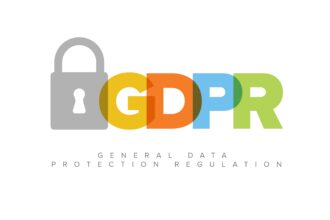In only a few week’s time the Grand Prix of Spain will be hosted at the Circuit de Catalunya, which is just a couple of kilometres away from our conference venue. Yesterday afternoon, Marc Gallagher, Head of Cosworth’s Formula 1 Business Unit, gave us some fascinating insights into the use of data analytics in Formula One (F1).
In only a few week’s time the Grand Prix of Spain will be hosted at the Circuit de Catalunya, which is just a couple of kilometres away from our conference venue. Yesterday afternoon, Marc Gallagher, Head of Cosworth’s Formula 1 Business Unit, gave us some fascinating insights into the use of data analytics in Formula One (F1). With more than 25 years of experience behind him, Marc Gallagher is well aware of the key issues in this high-tech sport. In his talk, he highlighted the importance of data analytics for drivers’ safety. He pointed out that F1 teams worked hard at improving drivers’ safety over the last two decades, which led to an increase in data volumes and raised the need for analytics. „Teams have started collecting all available data to understand what could happen in case of an accident,” explained Gallagher. These insights have brought substantial security enhancement, e.g. a new way of constructing suspensions or using shock-absorbing material for driver cockpits.
Of course, the engine’s reliability and performance are still as important as they used to be throughout Formula One’s history. Today, teams thoroughly test several configurations, and yes, this does involve collecting huge amounts of sensor data, not just asking test drivers about their experiences. What really surprised me was the fact that there are 200 different streams of data coming from sensors within the engine (Engineers can actually monitor more than 450 data streams for real-time insights during a race). “To win in Formula One you need to have the right data at the right time”, Marc said. And sometimes the most basic bits of information can be the tie-breaker. In 1999, recalled Gallagher, Jordan’s Scottish bus driver read the sky correctly and predicted that the rain wouldn’t stop during the race (the satellite-based forecasts were not so sure), which gave the team a tactical advantage. Driver Heinz-Harald Frentzen finished the Grand Prix of France well ahead of the competition and handed over his medal to the bearer of crucial analysis afterwards.
What banks could learn from F1 racing
Decisions made months or years ago can be as important as split-second reactions during a race. This is particularly true in banking, another industry subject to intense global competition. In another session, HSBC’s Sharon Allsop Kenney, Senior Manager, Business Intelligence and Data Management, explained how the bank successfully implemented its risk management capability that helps to drive business value from huge amounts of diverse data. Just like Formula One teams, banks are subject to ever-changing regulations. With Basel III, standards for bank capital adequacy and liquidity are raised once again. Banks need to understand their assets as thoroughly as engineers understand the features of their engine.
It’s the team that matters
Regardless of whether you want to build a sophisticated racing car or a fully-fledged data warehouse: keeping a team of several hundred people fully focussed on the goal while trying to meet all the technical, financial and operative challenges can be pretty relentless. Our second keynote speaker on Tuesday afternoon, Alain de Botton, author and philosopher, would certainly agree. In his keynote, he entertained us with his astute observations about the influence of work on our happiness. From his point of view, the best way to make sure that people do a good job is to make them like what they do. He pointed out that, from a psychological perspective, we want to help others with what do for a living. If we realize that our work actually helps colleagues or customers in any way, we most likely enjoy a fulfilling job. And it’s certainly fulfilling to hear from our customers how Teradata technology helps them to do more with their data.
Do more with your time!
Time flies – and the Universe is already about to enter home stretch. Maybe and the following fine example of visualizing geospatial data will help you to make the best of the remaining time. Eric Fischer, a user of the photo-sharing site Flickr, plotted the locations where geotagged photos were taken on a map. In doing so, he distinguished between locals and tourists. Just click on Barcelona’s map to check if you’ve visited all sightseeing highlights. Maybe this map will reveal some “secret” hot spots your city guide omits. So, one way or another, make the most of this data!








